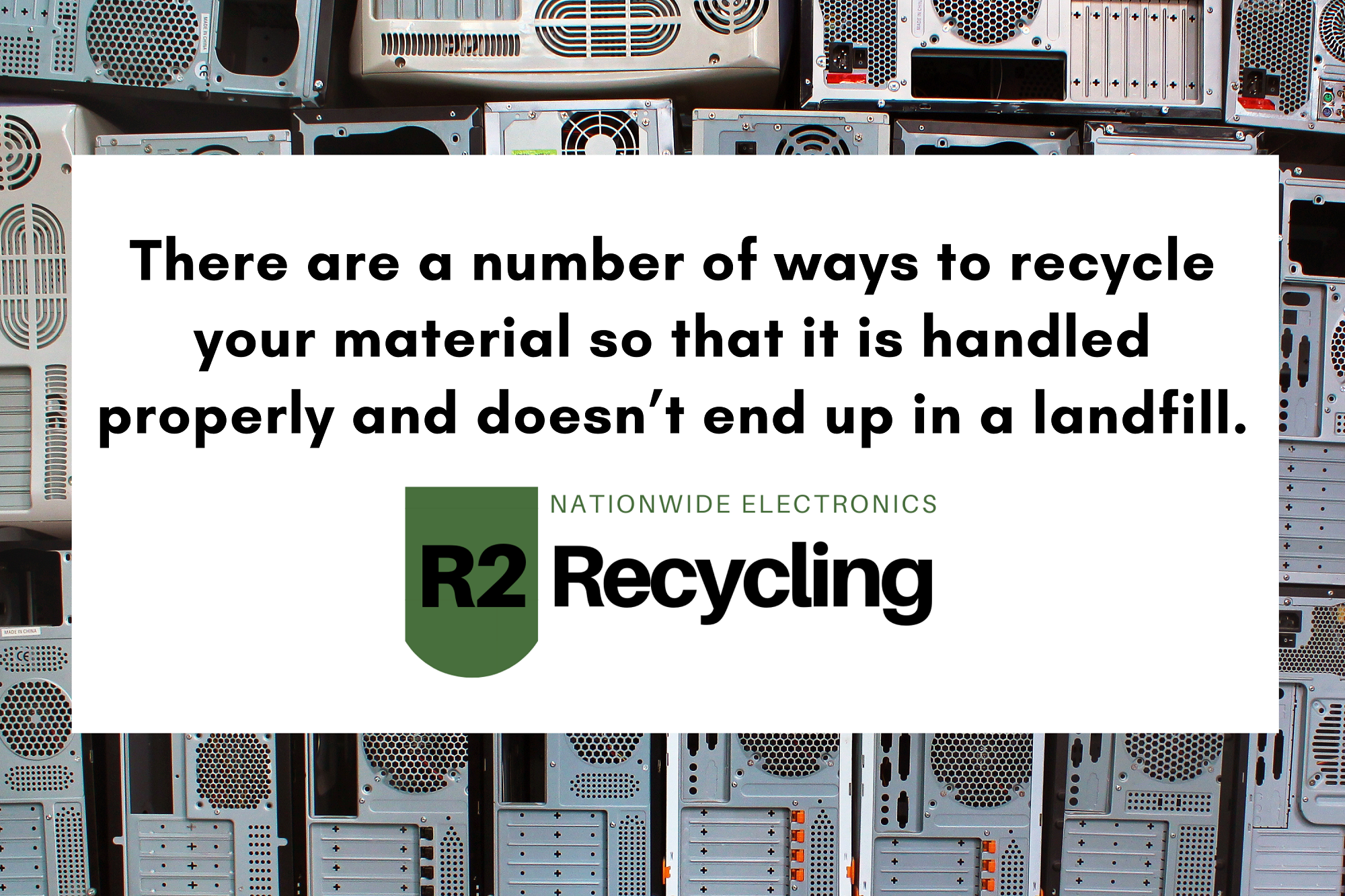LAKEWOOD, NJ / ACCESSWIRE / December 22, 2020 / Technology is moving at a faster pace than ever before. As new technology is rapidly developed & distributed, it begs the question: What becomes of the older equipment? It's increasingly getting recycled, at destinations like R2 Recycling, which works with a nationwide network of R2-certified recyclers. It's been reported (by the Global E-Waste Statistics Partnership) that the nation now collects in excess of 6,000,000 tons of electronic waste on an annual basis.

Whether or not electronic waste recycling is mandatory is left up to each individual state. Regardless of the laws in place, recycling demonstrates responsible management of the environment through the prevention of toxic chemicals being spread into our soil & waterways, and through the reuse of materials that prevent the need for mining of new metals. The ideal choice to accomplish this goal is to use specialized recyclers like R2 Recycling (which partners with a nationwide network of recyclers that follow the R2 Standard). Here, we will take a look at what is done with the old material.
Electronics Collection
There are a number of ways to recycle your material so that it is handled properly and doesn't end up in a landfill. The recommended method for proper security & data destruction is through the use of an experienced electronics recycler like R2 Recycling, which can be relied on due to its nationwide network of R2 certified partners.
If you're a business, one option is to arrange for an e-waste recycler to come right to your facility to do a pickup. Keeping sensitive data in trustworthy hands is of utmost importance, which is why R2 Recycling works with recyclers that follow the R2 standard to assure data security through either documentation or even on-site destruction through the use of specialized equipment.
Breaking Down Items & Components
The first step when items enter a facility is for several components (batteries, cable, toner cartridges, etc.) to be removed. After items arrive at a facility like the one operated by R2 Recycling, they are broken down into smaller pieces that can later be used in place of newly mined resources to create new products (this includes plastic, as well as various metals such as palladium, gold, silver, etc.).
The process of separation involves everything from magnets (to collect metal) to water (to separate plastic). All the pieces are then sent to processors where they are melted down and ultimately repurposed in items like computers, laptops & scrap metal: this limits the need to mine for new resources. This is a process followed by R2 Recycling along with its nationwide team of R2 certified recyclers.
Carefully Choose Your E-Recycler
Proper stewardship of the environment starts with making sure you donot use just any fly-by-night operation for your electronics recycling needs, where guidelines for proper processing & data security will likely not be followed. Some may resell the items before the data is wiped/destroyed, making private information susceptible for ending up in nefarious hands. Furthermore, improper disposal becomes an environmental hazard and becomes counterproductive to all the progress we are trying to make.
For more information, contact R2 Recycling at (866) 509-7267 or reach them online at http://www.r2-recycling.com.
About R2 Recycling
R2 Recycling is a premier computer and electronics recycler that provides solutions for towns, businesses, schools, hospitals, and government entities. The recycler serves clients nationwide.
Contact:
Michael De Fortuna
https://www.linkedin.com/company/r2-recycling
https://business.facebook.com/R2-Recycling-111805887365782
SOURCE: R2 Recycling



